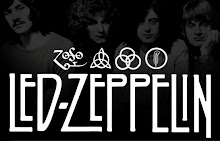STyLes Of PoEtRy
The style of writing poetry differs from person to person; long or short meters, three or four lines to a stanza. But the great thing is, no matter how a poem is written it still holds great emotion. Some techniques used in poetry are onomatopoeia, alliteration, assonance, rhyming, simile and metaphor.
Onomatopoeia is one of the easiest to learn and use (but not spell). The definition of onomatopoeia is a word imitating a sound. For example; 'buzz', 'moo' and 'beep'. This can be used in a variety of ways giving the reader a 'hands on' feel.
One technique that you might be familiar with is alliteration. This procedure is used by starting three or more words with the same sound. An example of this would be 'The crazy crackling crops.' The three words don't have to have the exact same beginning to have this effect.
The next style is assonance. It is defined as a repetition of vowel sounds within syllables with changing consonants. This is also used in many different circumstances. One would be 'tilting at windmills.' Notice the vowels within each syllable sound the same.
Rhyming is probably the most well-known technique used. However unlike popular belief, it does not need to be within a poem to make it a poem. It is what it is.. a technique.
As for similes, they are often used within poetry. They are an expression that compares one thing to another. A paradigm of this would be 'The milk tasted like pickles.' This method is used in all forms of poetry and generally has the words 'like' or 'as.'
The last but not least style is metaphor. A metaphor is a word or phrase used one way to mean another. Metaphors are sometimes hard to spot and take some thinking to figure out, but they give writers more power to express their thoughts about a certain situation. One famous case where a metaphor is used is within 'The Raven' by Edgar Allen Poe. In fact, not only is it found within the story, the story itself is a metaphor of memory and the constant reminder of the narrator's loss.
These techniques are seen throughout history within both famous and amateur poems alike. To have a full grasp of poetry onomatopoeia, alliteration, assonance, rhyming, simile and metaphor should be household words.
Saturday, December 13, 2008
Subscribe to:
Post Comments (Atom)

No comments:
Post a Comment